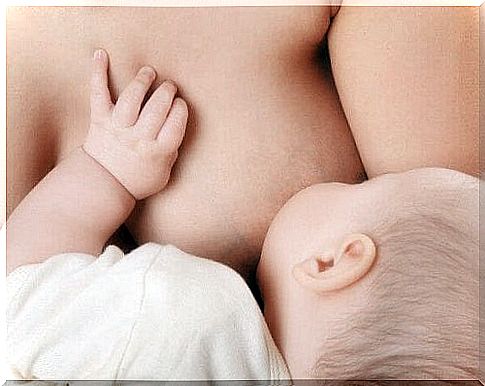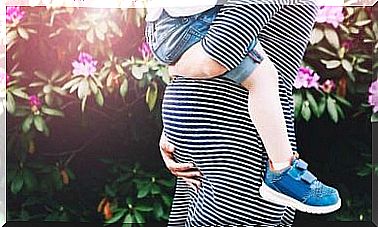The 9 Most Frequently Asked Questions About Breastfeeding

While there is plenty of information available for mothers that they can research on their own, they will still have many common questions about breastfeeding.
Most women are able to breastfeed their children. Cases where mothers are unable to breastfeed their children are not normal, and can in most cases be resolved, with the help of a specialist.
In fact, there are many centers and groups available that can provide assistance to breastfeeding mothers.
For mothers, most breastfeeding questions are about whether or not they produce enough breast milk.
New mothers are also thinking about whether their milk provides their baby with adequate nutrition.
But, the fact is, with practice, the technique and production will improve over time. The best thing you can do is relax.
The most common questions about breastfeeding
When is the right time to breastfeed my newborn baby?
The answer is straightforward. The most natural thing to do is to place your newborn baby at your breast as soon as you receive him or her so he or she can start sucking.
Although your milk will take some time – even days – to flow, your baby’s sucking will help with the process.
Keep in mind that milk production may take longer to begin, in case of cesarean section.
How do I know if I am producing enough milk for my baby?
Your baby will take on the responsibility of increasing your milk production through sucking.
Therefore, it is important to let your baby be breastfed, on demand, through the first days of life.
You also need to pay special attention to the technique so that you are sure that the baby’s face is facing your chest. If your baby is just sucking on your nipple, help him or her open his or her mouth more so that your entire areola is covered.
Finally, your baby’s lips should face outward.

How much milk should my baby drink?
Allow your baby to drink until he or she is satisfied. Ideally, your baby should empty one breast before starting on the other.
The reason for this is that the first milk that comes out – “the thin milk” – is more watery and sugary. It provides needed calories, and keeps your baby hydrated.
Next, comes the “thick milk”, which has a higher content of fat, and contributes to your baby’s weight gain. Both “the thin milk” and “the thick milk” are important for your baby.
Mothers also often ask how long their baby should be breastfed at a time. Throughout the first few days of life, your baby needs to be breastfed on demand – which means as often as he or she wants, and for as long as he or she wants.
This will help stimulate your milk production. Over the next few months, your baby will begin to want to be breastfed at more regular intervals.
Should I stop breastfeeding if my breasts hurt?
It is normal for mothers to experience pain and cracks in the breasts, to begin with. In rare cases, the nipples may begin to bleed, but this is not harmful to your baby (although he or she may spit it out).
If your nipples are bleeding, it’s time to correct your baby’s sucking technique – seek help from a specialist if necessary.
During the first days of your baby’s life, when your milk production begins, you may experience painful swelling in your breasts.
Your breasts may also feel very hot. This is normal and can be relieved with a hot bath and by massaging the breasts.
However, if the swelling and pain persists, or occurs at a later date, you should check with your doctor to rule out mammary gland inflammation.
Several important questions about breastfeeding
Can I pump my breasts and give it to my baby in a bottle?
Throughout your baby’s first days of life, try to refrain from using bottles and pacifiers.
Your newborn is still learning to suck, and these accessories can cause confusion, due to their shapes and texture.
If you feel that your breasts are too full, the best thing you can do is give your baby more time to breastfeed. If this is not possible, you can pump out the excess milk and freeze it for later use.
This will be beneficial if you plan to go to work soon.
What about breast shields?
In the past, it was typical for mothers with inverted or flat nipples to use breast shields. However, this condition does not prevent a woman’s ability to breastfeed her baby, in any way.
While the baby is being breastfed, he or she will find a way that he or she can get the nourishment that is needed.
Is it possible to breastfeed with breast implants?
This is another, of the most common questions about breastfeeding.
Breast augmentation surgeries do not affect the mammary glands, which are the glands responsible for the production of milk.
Furthermore, there is no evidence that breast implants have any effect on milk or milk production.

What diet should breastfeeding mothers follow?
The golden rule is that whatever is difficult for the mother to digest will also create problems for the little baby.
Some foods can cause flatulence in babies and, as a result, cause colic. Therefore, it is best to reduce the intake of dairy products, cereals and refined flours.
In addition to breast milk, should my baby also drink water?
Babies who are breastfed on demand get all the hydration they need through their mother’s breast milk. As a general rule, babies should not drink water until they are at least 6 months old.
After this point, your child’s pediatrician may indicate when it’s okay to introduce water and other foods.









